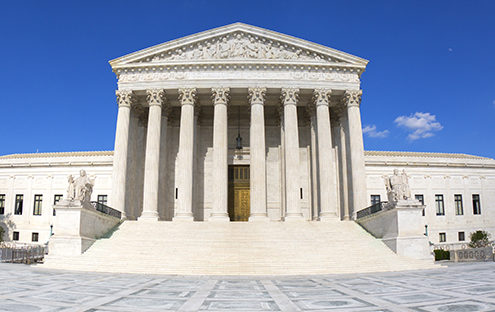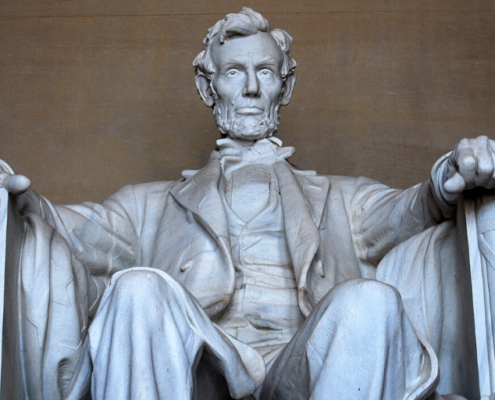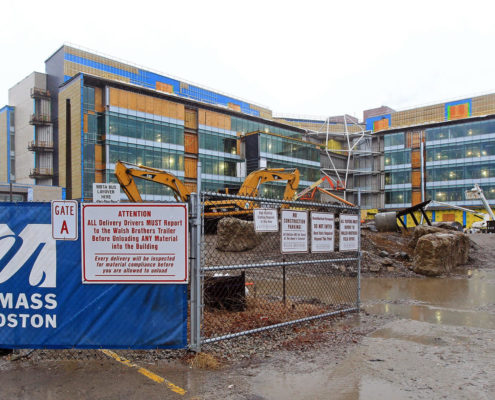
How Should Massachusetts Reopen Its K–12 Schools in the Fall? Lessons from Abroad and Other States
0 Comments
/
This report asserts that, with the fall semester fast approaching, Massachusetts should provide more specific COVID-19-related guidance for school districts about ramping up remote learning infrastructure; rotating in-person cohort schedules; diversifying methods of communication between students, parents, and teachers; and investigating physical distancing capabilities. Districts must determine whether to adopt in-person, remote, or hybrid schooling options, and they will not be ready for the fall unless the state provides clear direction.

Class Dismissed: Massachusetts’ Lack of Preparedness for K–12 Digital Learning During COVID-19
This white paper contends that the shutdown of Massachusetts schools due to the COVID-19 virus and the shift to online education have exposed the uneven nature of digital learning in the Commonwealth, and calls for state officials to develop programs to create more consistency. The study urges state officials to create a plan for the 2020-21 school year that will address the education gaps that occurred during the final semester of this school year. It also encourages a plan to address how future extended closures would be managed.

Shifting Special Needs Students to Online Learning in the COVID-19 Spring
This report by Pioneer Institute and ASU Prep Digital addresses the problem that school closures due to COVID-19 have separated more than seven million K-12 special needs students from support they receive in the classroom, and shows how online learning can be appropriate for most of those students if teachers and parents work as a team to provide each one with what he or she needs.

Breaking the Code: The State of Computer Science Education in America’s Public Schools
Even as the COVID-19 pandemic has further transitioned education…

As college students and parents demand robust COVID-19 response, university finances suffer
College enrollment has increased in every economic recession since the 1960s, as young people have difficulty finding jobs at their previous level of education. But the COVID-19 crisis has all but upended higher education’s business model, given the high susceptibility of college campuses to viral outbreaks.

The Common Core Debacle: Results from 2019 NAEP and Other Sources
This study finds that, breaking with decades of slow improvement, U.S. reading and math scores on the National Assessment of Educational Progress (NAEP) and other assessments have seen historic declines since most states implemented national Common Core English and math curriculum standards six years ago.

Shifting to Online Learning in the COVID-19 Spring
This new Pioneer Institute and ASU Prep Digital policy brief offers five important considerations for schools and districts dealing with the shift to online education in response to COVID-19.

Keeping Students Academically Engaged During the Coronavirus Crisis – Part One
Pioneer Institute calls on the U.S. Department of Education (USED) to quickly establish comprehensive but concise guidelines for federal law around school closures. Because of the COVID-19 virus, schools have been closing rapidly around the nation, and they are trying to transition to alternative, largely online, learning programs.

The Next Chapter of Education Funding in Massachusetts
Efforts to update the Commonwealth’s K-12 education funding formula should focus on narrowing the gap between affluent and low-income school districts and be accompanied by reforms designed to improve student outcomes and enhance accountability.

An Analysis of How Massachusetts’ ‘Student Growth’ Model Limits Access to Charter Public Schools
The Student Growth Percentile (SGP) the Massachusetts Department of Elementary and Secondary Education (DESE) now uses as 25 percent of the formula for determining school district rankings has a high degree of error. While the SGP may have a role to play as part of discussions around holding districts accountable for performance, it should not be used for high-stakes policy decisions, including which districts are eligible for an increase in the charter public school cap.

Fiscal Crisis at UMass Boston: The True Story and the Scapegoating
While the blame fell on former UMass Boston Chancellor Keith Motley, the UMass Board of Trustees and President bear the bulk of the responsibility for the recent budget crisis at UMass Boston due to a lack of oversight of the campus’s capital expenditures.

Amicus Brief: Espinoza v Montana Department of Revenue
Pioneer Institute today announced that it has submitted an amicus curiae urging the United States Supreme Court to hear Espinoza v. Montana Department of Revenue, which challenges a state constitutional amendment marked by religious bias.

A Risky Proposal for At-Risk Private Colleges: Ten Reasons Why the Board of Higher Education Must Rethink Its Plan
The Baker administration and the Massachusetts Board of Higher Education (BHE) should slow down a fast-tracked proposal to protect students from sudden, unexpected college closings such as what occurred at Mt. Ida College, and use the time to rethink its proposal from top to bottom.

Wise and Humane: Private School Nursing in Massachusetts
Private and parochial school students in Massachusetts have been denied well over $10 million in school nursing services to which they are entitled under state law.

Social-Emotional Learning: K-12 Education as New-Age Nanny State
Social-emotional learning (SEL) has been billed as a transformational tool that will propel students to greater academic achievement and personal fulfillment. Unfortunately, the research evidence to back up these claims is thin and unpersuasive. Moreover, the risks SEL poses to student privacy and health are significant.

Preparing Students for a Future in Fintech
While the finance and insurance industries are changing rapidly, course requirements and skill-building opportunities at Massachusetts higher education institutions are still evolving to meet job demands, presenting an opportunity for state higher education institutions to create programs that give Massachusetts students a competitive edge in the age of fintech – diverse digital technology changes impacting banking, insurance, and other sectors of the finance industry.

Charter School Funding in Massachusetts: A Primer
A new Pioneer Institute study finds that foundation districts are largely unaffected by students who choose to transfer to charter schools.

Axioms of Excellence: Kumon and the Russian School of Mathematics
At a time of declining state and national math proficiency, after-school math programs offer a viable option for quickly increasing the number of mathematically competent students. In this study, Pioneer Institute profiles two such programs: Kumon and the Russian School of Mathematics.

Common Core, School Choice and Rethinking Standards-Based Reform
While U.S. academic performance has declined since the broad implementation of Common Core, school choice programs are increasingly hamstrung by regulations that require private schools to adopt a single curriculum standards-based test as a condition for receiving public money, according to a new study published by Pioneer Institute.

Is Two-Tiered Education on the Rise in Massachusetts?
A review of the performance of Massachusetts students on National Assessment of Academic Progress 4th-grade reading and 8th-grade math tests shows that overall improvement has stalled in the last decade, but the percentage of students scoring in the top category has steadily increased.

No Longer A City On A Hill: Massachusetts Degrades Its K–12 History Standards
The Massachusetts Board of Elementary and Secondary Education should reject a proposed rewrite of the Massachusetts History and Social Science Curriculum Framework in its entirety and immediately restore the state’s 2003 framework, considered among the strongest in the country, according to a new research paper titled, No Longer a City on a Hill: Massachusetts Degrades Its K-12 U.S. History Standards, published by Pioneer Institute.

UMass Has a Spending Problem
The University of Massachusetts claims admissions policies that favor out-of-state students over in-state residents are required as a result of insufficient state funding growth, but the data tell a different story.

Inter-district Choice in Massachusetts
With little fanfare or controversy, Massachusetts’ inter-district school choice program has allowed students to access better schools and spurred competition between districts, but the 27-year-old choice law should be updated to ensure the program’s continuing success.

No IDEA: How Massachusetts Blocks Federal Special Education Funding for Private and Religious School Students
Over the past dozen years, thousands of private and religious school students in Massachusetts have been denied hundreds of millions of dollars’ worth of special education services to which they are entitled under federal law.

Remarks at 25th Anniversary Event for the Massachusetts Education Reform Act
Massachusetts Education Reform Act co-author and former Senate President Tom Birmingham praised the historic success that has been achieved since the law was enacted in 1993, but expressed concern that the Commonwealth is veering away from basic principles of the law that produced that success at a State House event marking the 25th anniversary of the Education Reform Act.

2018 Proposed Revisions to Massachusetts History and Social Studies Frameworks
This public statement addresses the draft of the Massachusetts History and Social Science Curriculum Framework that was released for public comment in January. The authors argue that the new standards would follow in the footsteps of recently adopted English, math, and science standards by representing a decline in content and coherence compared to their predecessors.

Mediocrity 2.0: Massachusetts Rebrands Common Core ELA and Math
The 2017 update of Massachusetts’ English and math K-12 academic standards represents further deterioration in English, while the math standards are essentially unchanged from the 2010 version, according to the first independent evaluation of the newly revised standards. The 2010 standards, which were based on Common Core, led to declining scores on national tests in both English and math.

Cristo Rey Schools: A Model of 21st-Century Catholic Education
This paper examines Cristo Rey schools, why they work, how they work and what parts of their education/business design can be successfully transferred to other Catholic high schools. It will look at the Cristo Rey Network, a cooperative organization formed to standardize the Cristo Rey approach, offer resources to the individual schools and help promote the spread of Cristo Rey schools to cities that can support them.

Amicus Brief: Jane Doe v. Peyser
Through its public interest law initiative PioneerLegal, Pioneer…

Expanding Educational Opportunities: Three Models for Extended Summer Enrichment Programs in Massachusetts
The last of a three-part series by Pioneer Institute on summer learning shows that Massachusetts schools establishing summer enrichment programs to close the achievement gap between lower-income and higher-income students can have a greater impact by eventually expanding the program across multiple summers or for a full year. This final paper introduces three types of extended summer enrichment models: 12-month programs, multi-year summer-only programs, and multi-year, year-round programs.
